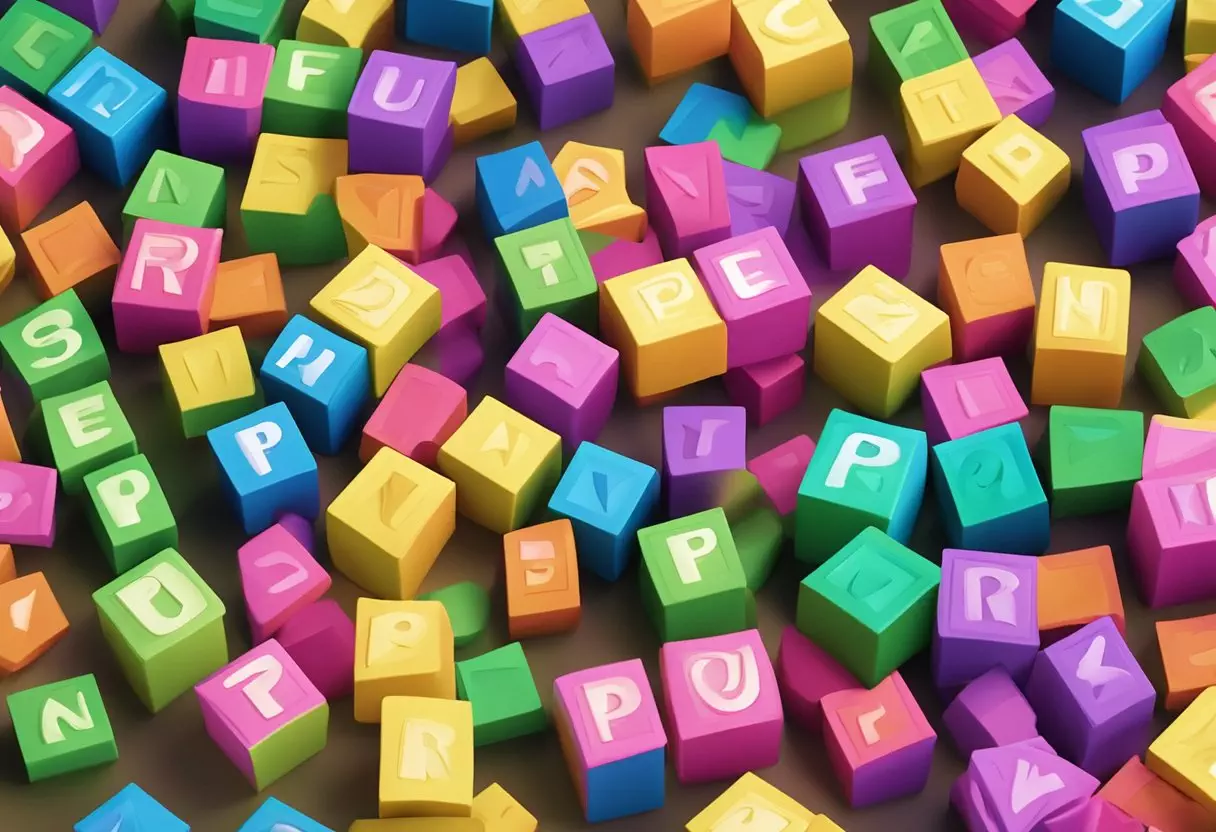Baby Name Rupert: Uncovering Its Origins and Popularity
Choosing a baby name is a delightful yet daunting task, but if you’re leaning towards names with regal charm and a dash of uniqueness, you might find yourself considering the name Rupert. This name carries with it a legacy of Germanic origins, where it stands for ‘bright fame.’ The endearing sound of Rupert has made it a beloved choice in Britain, often reminiscent of a classic cartoon bear that’s been a part of British childhoods for generations.

The roots of Rupert stretch back to the Old High German elements ‘hrothi’ and ‘berht,’ meaning ‘fame’ and ‘bright,’ respectively. In its path through history, Rupert has also been bestowed upon saints and nobility, adding to its timeless allure. Its Latin counterpart, Rupertus, connects it linguistically to the name Robert. With such a rich background, Rupert could be a meaningful nod to ancestral names while still standing out in the modern naming world.
Table of Contents
The Origin of the Name Rupert

The name Rupert carries a regal charm and a rich history that traces back to Germanic roots. Its ascent in popularity can often be linked to its early use by saints and nobility.
Historical Usage and Saint Rupert
Saint Rupert of Salzburg is a significant bearer of the name, often credited with its spread and popularity. Saint Rupert, an early bishop, played a pivotal role in the Christianization of the Bavarian region and is venerated in the Roman Catholic Church. This early usage of Rupert by such an influential figure helped cement the name’s connotation of piety and leadership within Germanic-speaking societies.
Linguistic Roots and Variations
Rupert is essentially the German variant of the name Robert, springing from the Old High German Hruodoperht. Dissecting the name reveals its meaning: “hruod” stands for fame and “berht” translates to bright. The Latin Rupertus is a derivative of these ancient Germanic elements, thereby underpinning Rupert with a meaning that denotes illustrious fame. What’s intriguing about the name Rupert versus its counterpart Robert is that while both share a common ground in terms of etymology, Rupert remains less common in English-speaking countries, lending it a distinctive allure.
Cultural Significance and Famous Ruperts

The name Rupert carries a notable blend of charm and historical weight, echoed through a lineage of eminent figures in arts and nobility. From the realms of cinema to the corridors of castles, the name signifies a storied presence that you may find both inspiring and intriguing.
Actors and Entertainment
- Rupert Grint: Best known for his portrayal of Ron Weasley in the “Harry Potter” film series, Rupert Grint has become an endearing figure in contemporary British entertainment.
- Rupert Everett: With his full name being Rupert James Hector Everett, this acclaimed actor brings depth and sophistication to his roles, such as the unforgettable voice of Prince Charming in “Shrek 2.”
- Rupert Giles: A fictional character from the television series “Buffy the Vampire Slayer,” Rupert Giles has etched his name in pop culture as the archetypal mentor and watcher.
- Rupert Graves: This versatile actor has graced both stage and screen, noteworthy for his performances in BBC’s “Sherlock” series.
Historical Figures and Nobility
- Prince Rupert of the Rhine: Introducing the name to England in the 17th century, Prince Rupert was a key military commander and a nephew of Charles I. His legacy is remembered for its nobility and valor in a turbulent era.
- Rupert of Hentzau: A fictional character from the novel “The Prisoner of Zenda,” representative of the romantic lure associated with the name Rupert in historical narrative.
Writers and Artists
- Rupert Brooke: An accomplished poet, Rupert Chawner Brooke is remembered for his war sonnets that mirror the turbulence and passion of his era.
- Rupert Holmes: This multi-talented composer and songwriter added a narrative depth to pop music with hits like “Escape (The Piña Colada Song).”
- Rupert Bear: A marquee figure in Britain, Rupert Bear is a beloved cartoon character with timeless appeal, endearing himself to generations of readers since his creation in the early 20th century.
- Rupert Murdoch: A media titan, Rupert Murdoch has left an indelible mark on the landscape of global media as a potent and sometimes controversial media mogul.
Popularity Trends and Geographic Variations

When you consider the name Rupert, you’re looking at a name with fluctuating popularity worldwide and various adaptations based on regional preferences. This section breaks down how Rupert has fared over time and the name’s unique spins across different countries.
Popularity Over Time
The popularity of Rupert has seen significant variation over the decades. In England, Rupert is a classic name with a consistent presence, partly due to its appearance in popular culture, like the beloved cartoon bear. However, this name’s popularity in the U.S. has been more modest, historically falling outside of the top 1,000 names for most of the years, showing a spike in some years but generally remaining a relatively unique choice.
- England: Steady popularity with a cultural attachment
- U.S. Births: Less common, with periodic interest
Regional Preferences and Adaptations
Across the globe, Rupert transforms to fit into different languages and cultural norms:
- Germanic Origins: Rupert holds its roots in German, closely related to the name Robert.
- Romance Languages Adaptations:
- Italian: Adapted to Roberto, retaining similarity to the original Germanic form.
- French: French adaptations tend toward Ruperto.
- Spanish: In Spanish-speaking regions, you might find Rupert as Ruperto.
- Slavic Variations:
- Russian: The name is rare, with no direct equivalent, but Robert is typically used.
- Polish: Robert remains the closer alternative, with Rupert being uncommon.
In Dutch and Portuguese-speaking countries, Rupert is typically less commonly used, with regional variations of Robert taking precedence. The name’s international presence showcases the way it’s woven into different societies, often heralding a sense of tradition and cultural identity.
Linguistics and Pronunciation

When you choose the name Rupert for your baby, it’s important to consider how it’s pronounced and its variations across languages.
Phonetic Considerations
The name Rupert breaks down into two syllables: Ru-pert. In its German origin, the ‘Ru’ is pronounced as ‘roo’, and the ‘pert’ closely resembles the English pronunciation ‘pert’ but with a rolling ‘r’. It’s crucial to note that despite the name’s simplicity, the pronunciation can vary slightly depending on the speaker’s accent.
To pronounce Rupert properly, focus on a clear and distinct ‘R’ sound at the beginning, ensuring it doesn’t blend with the following ‘u’. The ‘p’ should be sharp, and the ‘ert’ at the end should not be drawn out but terminated with a soft ‘t’.
International Variants
Rupert exhibits some variations in other European languages, with slight differences reflective of phonetic rules:
- French: Usually preserving the soft pronunciation of the ‘r’, might sound more like Roo-pehr.
- Italian: Pronunciation remains closer to the German, given its ‘Ruperto’.
- Spanish: The ‘r’ gets a bit of a trill and it’s pronounced as Roo-pert, similar to Italian.
- Dutch: Maintains a strong ‘R’ with a guttural sound common to the language, sounding like Roe-pert.
- Polish: The ‘R’ can be more heavily rolled, and with a slight inflection at the end.
- Portuguese: Often pronounced with a softer ‘R’, similar to the French, and ending may vary regionally, pronounced as Hoo-pert in some accents.
The pronunciation nuances of Rupert reflect the linguistic charm of taking a name that finds its roots in German heritage and watching it adapt across the European linguistic landscape.
Choosing Rupert as a Baby Name

When considering baby boy names, Rupert stands out with its roots in German origin and its distinctive meaning of “bright fame.” It’s a timeless choice that blends traditional charm with contemporary style.
Meaning and Personal Impressions
Rupert, a name of Germanic heritage, holds the significant meaning of “bright fame.” This charming name reflects a rich historical background, often linked with nobility and strength. Choosing Rupert for your baby boy can give a sense of sophistication, a nod to traditional values, and convey a personality expected to make a positive impact in the world.
Its similarity to the name Robert—a name with a storied legacy—and feminine variant Roberta, places Rupert within a classic family of names, while also allowing for uniqueness. The association with the well-loved British cartoon bear Rupert Bear adds a touch of endearment and cultural iconicity.
Compatibility with Surnames and Sibling Names
The selection of a first name that harmonizes with your surname and potential sibling names is crucial. Rupert’s two-syllable structure and distinct consonant-vowel arrangement allow it to flow smoothly with a wide range of last names, especially those that don’t end in a ‘t’ or ‘p’ sound:
- For surnames: Rupert Smith, Rupert Johnson, Rupert O’Connor.
- Less compatible: Rupert Pratt, Rupert Trapp.
As for sibling names, you might look for names that share a similar classic and timeless feel or perhaps complement the moon-related qualities tied to the name Luna. Here are some suggestions:
- For brothers: William, Charles, Edward.
- For sisters: Charlotte, Eleanor, and of course, Luna.
Pairing Rupert with sibling names commencing with different letters or sounds can create a nice rhythmic balance for your family namescape.
